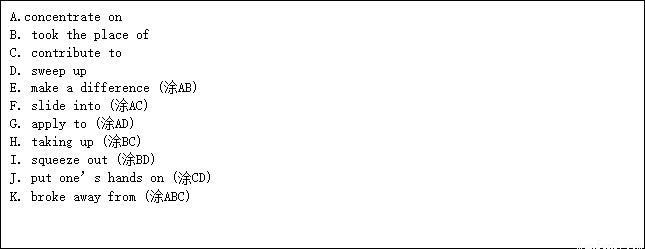题目内容
请认真阅读下列短文,并根据所读内容在文章后表格中的空格里填入一个最恰当的单词。注意:每个空格只填1个单词。请将答案写在答题卡上相应题号的横线上。
“I invented a new word. How do I get it into the dictionary?”
This is, by far, the question lexicographers(词典编纂者)hear the most. People invent new words all the time, but which ones actually make it into the dictionary? When lexicographers decide what words to add to dictionaries, they try to imagine what words users actually want to look up. There are important factors to keep in mind here.
1) Is the word in widespread usage?
The usage question is an important one that gets at the heart of how dictionaries are written. When modern lexicographers try to add words to dictionaries, they tend to approach their work from the angle of descriptivism — that is, they observe how the language is being used, see if it’s a common phenomenon, and then write definitions based on their research.
2) Does the word have staying power?
Widespread usage does not, however, guarantee a word a shiny new definition in a dictionary. Is the word going to stay around for a while, or is it just a passing fad? Is it likely to be in use in 5, 10, 20, or even 100 years? These are important questions to ask because there are far more updates and new words to be added to dictionaries than lexicographers have time to write.
3) Are you famous? Do you have influence?
If you’re famous, that could definitely up your chances of getting a word into a dictionary. Are you a writer? That could help. Take, for example, William Shakespeare, who invented (or at least popularized) hundreds of words and phrases commonly used today. Politicians also make their contributions. Abraham Lincoln invented the word neologize, and Winston Churchill has the first citation(引语)in the OED for many words, including fluffily and fly-in. So if you’re a person with influence and a following, the words you use can spread into common usage, which, as discussed above, is very important when it comes to gaining dictionary-entry.
4) Does the word fill a gap in the language?
If you’re not famous, there are other ways. Maybe you’re a scientist introducing new concepts to the public. Take, for example, the Higgs Boson particle(粒子), named after physicist Peter W. Higgs. But you don’t have to be a scientist to get your word a dictionary entry. Just look at Dominique Ansel, the pastry chef (糕点师) who captured the stomachs of New Yorkers with his dessert, the cronat. His invention even inspired copycats in the form of doissants and daffins.
Apart from these, it does sometimes help if the word is fun to say. The term blog is relatively new, which arose in 1999 when Peter Merholz made a light-hearted comment on the sidebar of his “weblog” telling his readers “I’ve decided to pronounce the word ‘weblog’ as wee’-blog. Or ‘blog’ for short.” And there’s also Dr. Seuss, who invented the term nerd.
So, why do some words make it into dictionaries while others don’t? With the knowledge discussed above in hand, the answer is more than obvious. Go forth! Use language creatively! Lexicographers are listening!
Title: How does a word gain 1. into the dictionary? | ||
Reasons | Details | Examples |
Being used 2. | With the approach of descriptivism, modern lexicographers will observe how commonly a word is used and 3. it according to their research. | |
Having staying power | The 4.a word remains in use, the more likely it is to be put into the dictionary. | |
Being invented by famous people | Chances of dictionary entry also 5.if the new word is invented by people of importance and influence. | hundreds of words and phrases invented by literary figures and 6. |
7.a gap in the language | If a word introduces new scientific concepts, or 8. new inventions, it will probably get into the dictionary. | the Higgs Boson particle; cromit, doissants, duffins |
Being fun to say | Some words make it into dictionaries because they carry a 9. of fun when you use them. | 10., nerd |


